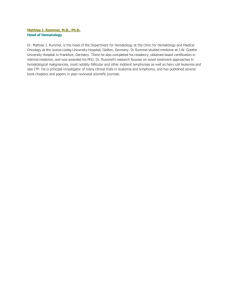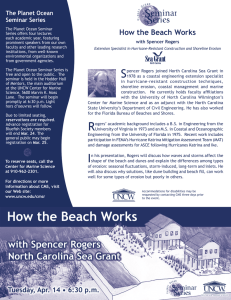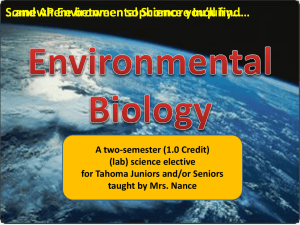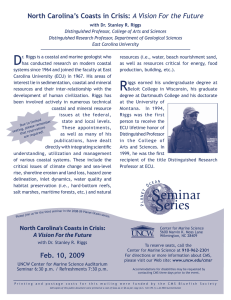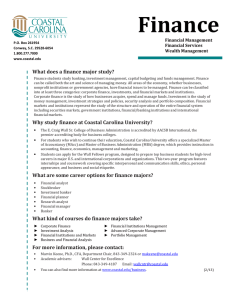Mitigate, Adapt, or Suffer? The Planet Ocean Seminar Series
advertisement
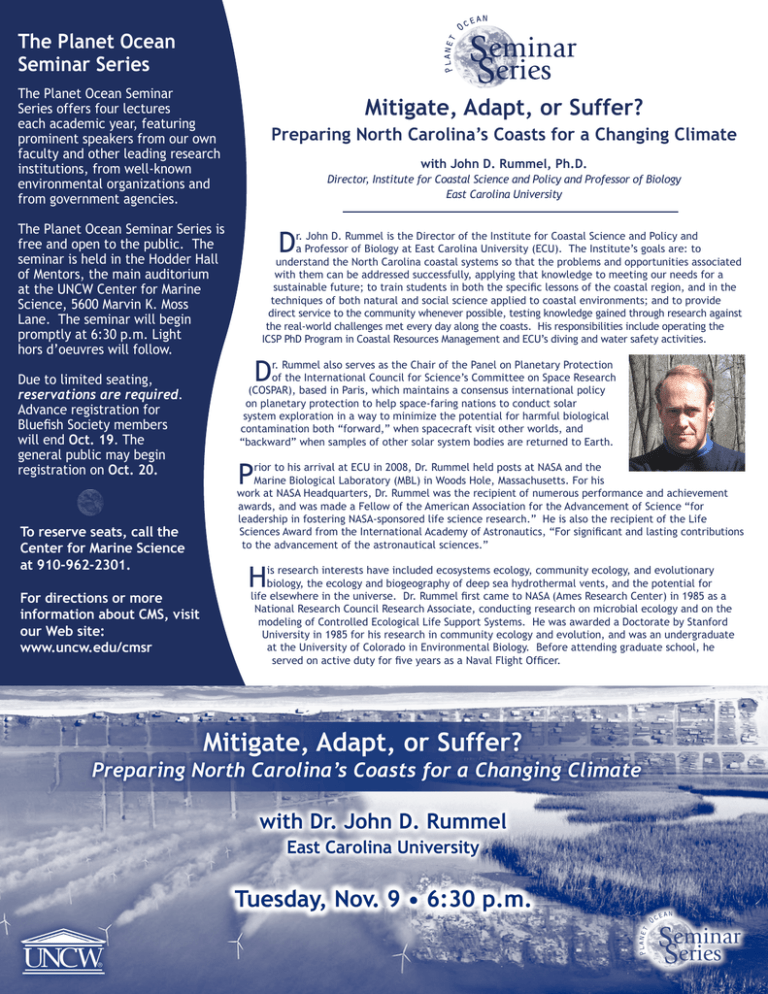
The Planet Ocean Seminar Series The Planet Ocean Seminar Series offers four lectures each academic year, featuring prominent speakers from our own faculty and other leading research institutions, from well-known environmental organizations and from government agencies. Mitigate, Adapt, or Suffer? Preparing North Carolina’s Coasts for a Changing Climate with John D. Rummel, Ph.D. Director, Institute for Coastal Science and Policy and Professor of Biology East Carolina University The Planet Ocean Seminar Series is free and open to the public. The seminar is held in the Hodder Hall of Mentors, the main auditorium at the UNCW Center for Marine Science, 5600 Marvin K. Moss Lane. The seminar will begin promptly at 6:30 p.m. Light hors d’oeuvres will follow. Due to limited seating, reservations are required. Advance registration for Bluefish Society members will end Oct. 19. The general public may begin registration on Oct. 20. To reserve seats, call the Center for Marine Science at 910-962-2301. For directions or more information about CMS, visit our Web site: www.uncw.edu/cmsr D r. John D. Rummel is the Director of the Institute for Coastal Science and Policy and a Professor of Biology at East Carolina University (ECU). The Institute’s goals are: to understand the North Carolina coastal systems so that the problems and opportunities associated with them can be addressed successfully, applying that knowledge to meeting our needs for a sustainable future; to train students in both the specific lessons of the coastal region, and in the techniques of both natural and social science applied to coastal environments; and to provide direct service to the community whenever possible, testing knowledge gained through research against the real-world challenges met every day along the coasts. His responsibilities include operating the ICSP PhD Program in Coastal Resources Management and ECU’s diving and water safety activities. D r. Rummel also serves as the Chair of the Panel on Planetary Protection of the International Council for Science’s Committee on Space Research (COSPAR), based in Paris, which maintains a consensus international policy on planetary protection to help space-faring nations to conduct solar system exploration in a way to minimize the potential for harmful biological contamination both “forward,” when spacecraft visit other worlds, and “backward” when samples of other solar system bodies are returned to Earth. P rior to his arrival at ECU in 2008, Dr. Rummel held posts at NASA and the Marine Biological Laboratory (MBL) in Woods Hole, Massachusetts. For his work at NASA Headquarters, Dr. Rummel was the recipient of numerous performance and achievement awards, and was made a Fellow of the American Association for the Advancement of Science “for leadership in fostering NASA-sponsored life science research.” He is also the recipient of the Life Sciences Award from the International Academy of Astronautics, “For significant and lasting contributions to the advancement of the astronautical sciences.” H is research interests have included ecosystems ecology, community ecology, and evolutionary biology, the ecology and biogeography of deep sea hydrothermal vents, and the potential for life elsewhere in the universe. Dr. Rummel first came to NASA (Ames Research Center) in 1985 as a National Research Council Research Associate, conducting research on microbial ecology and on the modeling of Controlled Ecological Life Support Systems. He was awarded a Doctorate by Stanford University in 1985 for his research in community ecology and evolution, and was an undergraduate at the University of Colorado in Environmental Biology. Before attending graduate school, he served on active duty for five years as a Naval Flight Officer.
